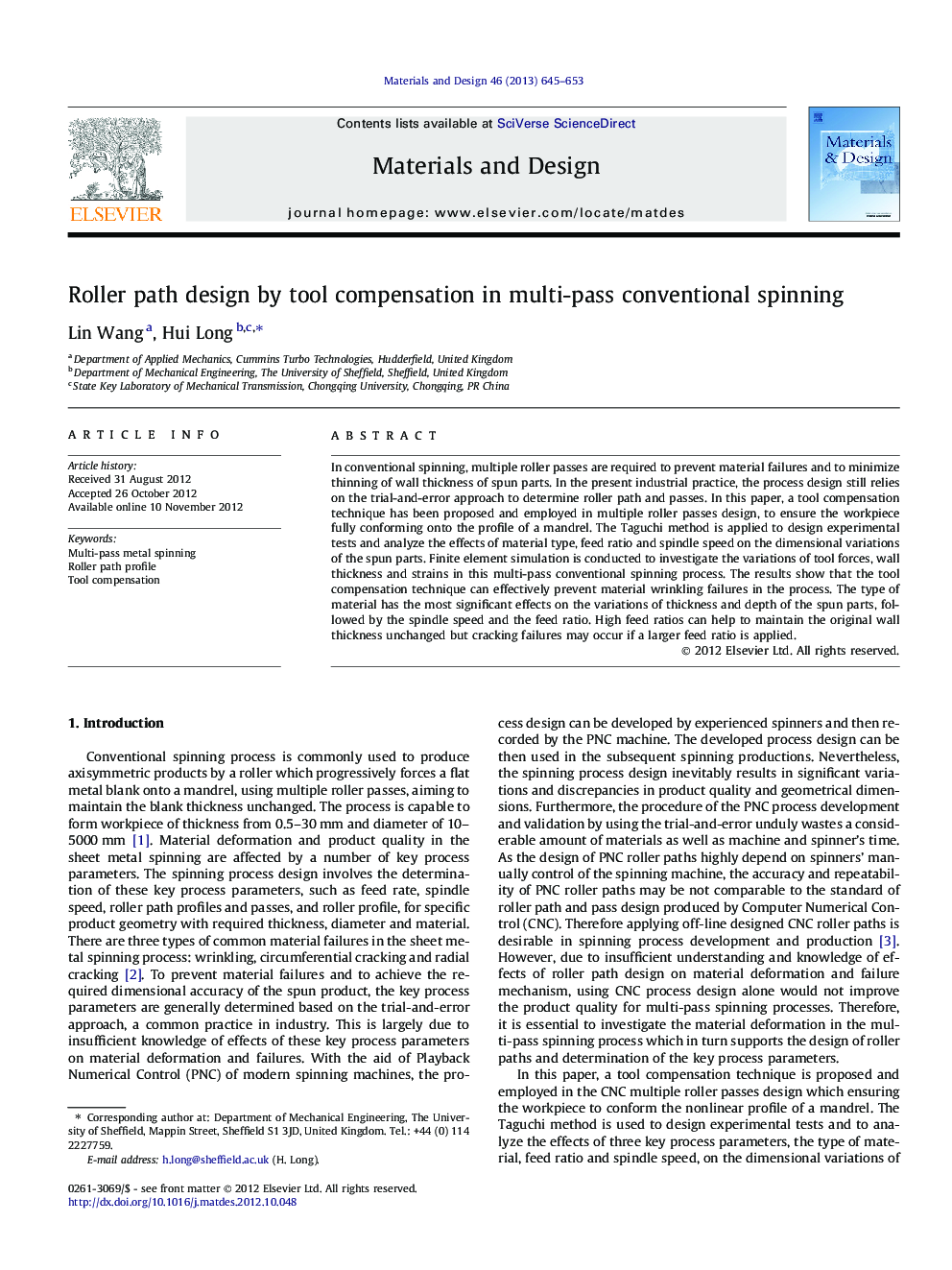| Article ID | Journal | Published Year | Pages | File Type |
|---|---|---|---|---|
| 830192 | Materials & Design (1980-2015) | 2013 | 9 Pages |
In conventional spinning, multiple roller passes are required to prevent material failures and to minimize thinning of wall thickness of spun parts. In the present industrial practice, the process design still relies on the trial-and-error approach to determine roller path and passes. In this paper, a tool compensation technique has been proposed and employed in multiple roller passes design, to ensure the workpiece fully conforming onto the profile of a mandrel. The Taguchi method is applied to design experimental tests and analyze the effects of material type, feed ratio and spindle speed on the dimensional variations of the spun parts. Finite element simulation is conducted to investigate the variations of tool forces, wall thickness and strains in this multi-pass conventional spinning process. The results show that the tool compensation technique can effectively prevent material wrinkling failures in the process. The type of material has the most significant effects on the variations of thickness and depth of the spun parts, followed by the spindle speed and the feed ratio. High feed ratios can help to maintain the original wall thickness unchanged but cracking failures may occur if a larger feed ratio is applied.
► Multiple roller path design by tool compensation can prevent material wrinkling. ► Material type has the most significant effect on part dimensional variations. ► High feed ratios help to maintain the original wall thickness unchanged. ► Tensile radial & tangential and compressive thickness strains causes wall thinning. ► Mild steel has a better ability than aluminum to stand spinning cracking failures.
